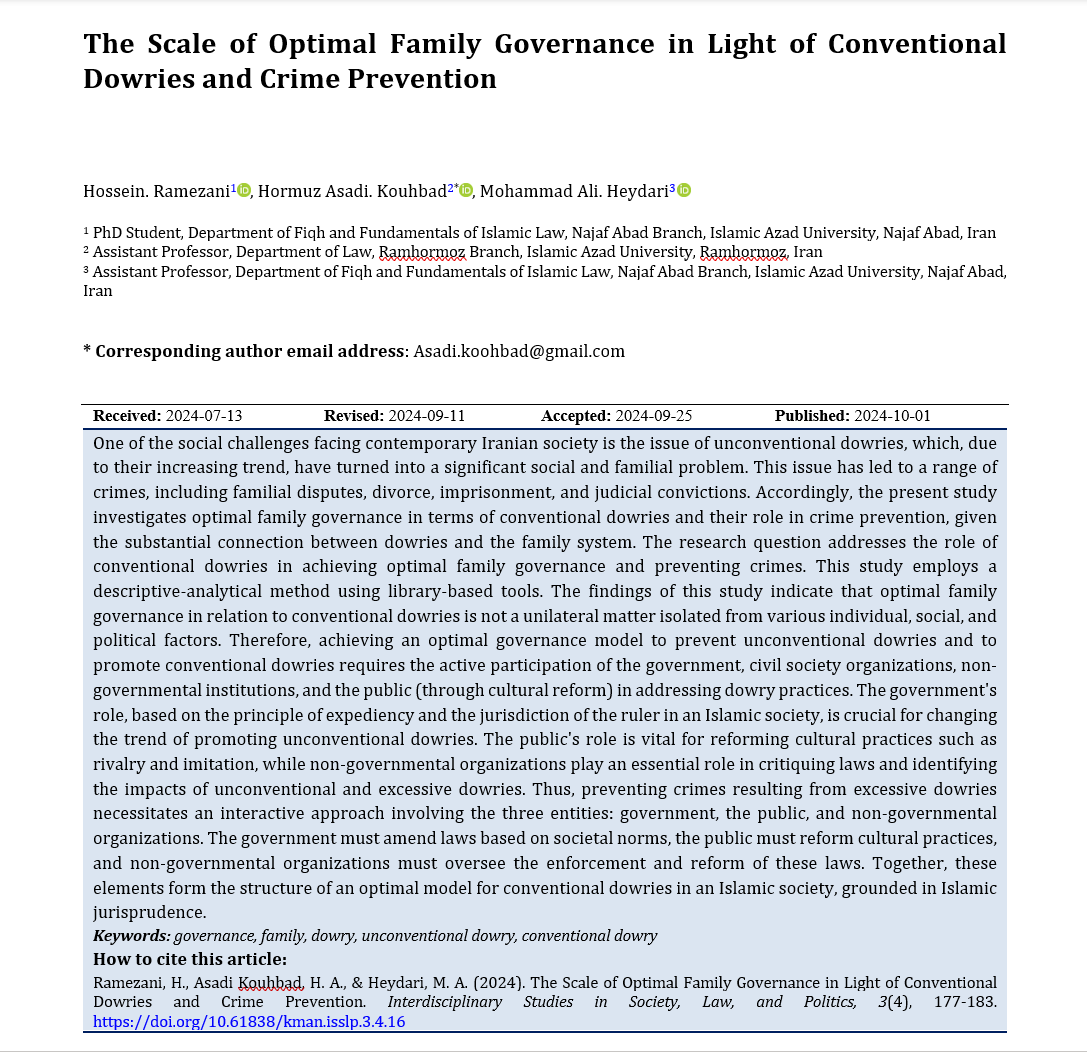The Scale of Optimal Family Governance in Light of Conventional Dowries and Crime Prevention
Keywords:
governance, family, dowry, unconventional dowry, conventional dowryAbstract
One of the social challenges facing contemporary Iranian society is the issue of unconventional dowries, which, due to their increasing trend, have turned into a significant social and familial problem. This issue has led to a range of crimes, including familial disputes, divorce, imprisonment, and judicial convictions. Accordingly, the present study investigates optimal family governance in terms of conventional dowries and their role in crime prevention, given the substantial connection between dowries and the family system. The research question addresses the role of conventional dowries in achieving optimal family governance and preventing crimes. This study employs a descriptive-analytical method using library-based tools. The findings of this study indicate that optimal family governance in relation to conventional dowries is not a unilateral matter isolated from various individual, social, and political factors. Therefore, achieving an optimal governance model to prevent unconventional dowries and to promote conventional dowries requires the active participation of the government, civil society organizations, non-governmental institutions, and the public (through cultural reform) in addressing dowry practices. The government's role, based on the principle of expediency and the jurisdiction of the ruler in an Islamic society, is crucial for changing the trend of promoting unconventional dowries. The public's role is vital for reforming cultural practices such as rivalry and imitation, while non-governmental organizations play an essential role in critiquing laws and identifying the impacts of unconventional and excessive dowries. Thus, preventing crimes resulting from excessive dowries necessitates an interactive approach involving the three entities: government, the public, and non-governmental organizations. The government must amend laws based on societal norms, the public must reform cultural practices, and non-governmental organizations must oversee the enforcement and reform of these laws. Together, these elements form the structure of an optimal model for conventional dowries in an Islamic society, grounded in Islamic jurisprudence.
Downloads






